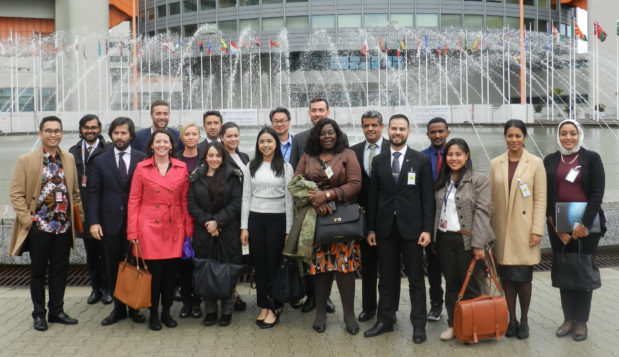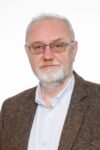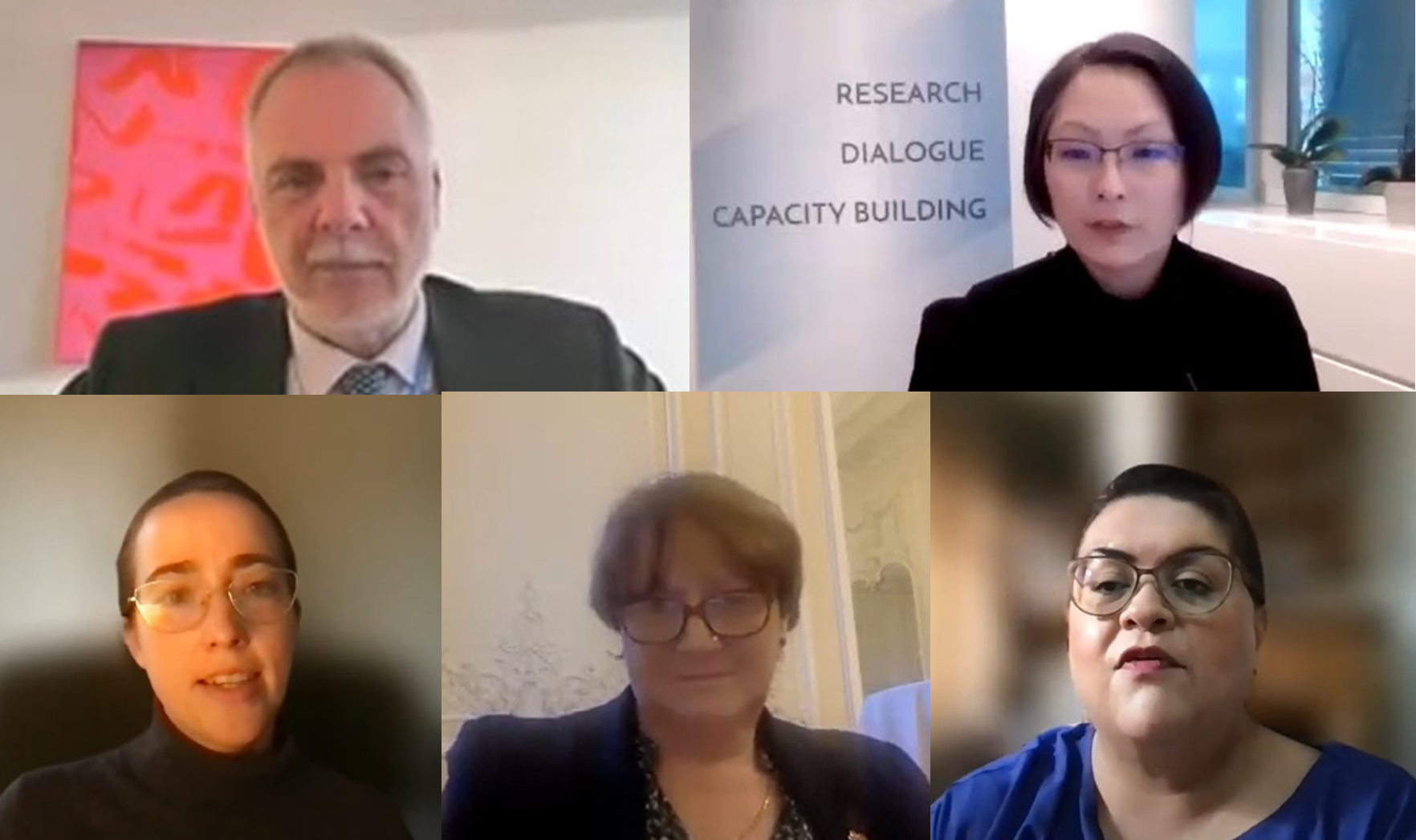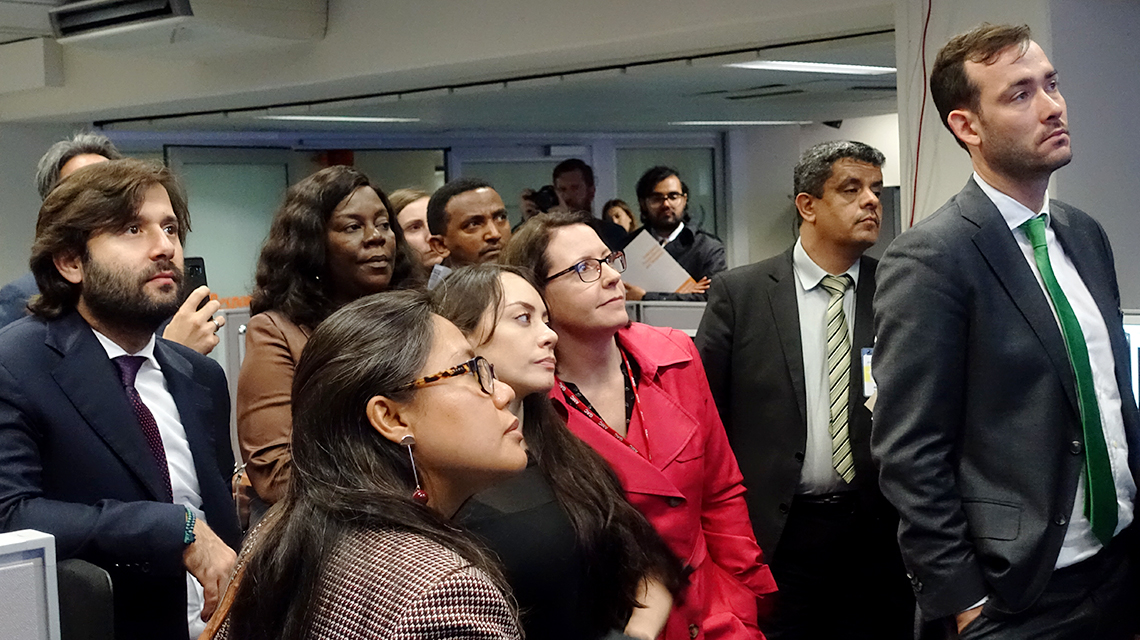
The VCDNP and the James Martin Center for Nonproliferation Studies (CNS) held their eighteenth intensive short course on nuclear non-proliferation and disarmament in Vienna, Austria, from 30 September to 4 October 2019. The VCDNP welcomed 24 diplomats and officials from government agencies, permanent missions and international organizations who represented 22 countries from Africa, Asia, the Middle East, Europe, South America, and other regions. Many of the participants are stationed in diplomatic missions in Vienna and Geneva, while others traveled from their national capitals. Women made up 50 percent of the participants and 54 percent of lecturers and guest speakers.

The one-week intensive course is designed to provide an overview of non proliferation and disarmament, to include history, constituent elements, and the current state of play. Discussions and lectures took on added relevance as many of the subjects covered had recently been discussed at the IAEA General Conference, which took place two weeks prior, while other issues are integral to the upcoming Treaty on the Non-Proliferation of Nuclear Weapons (NPT) Review Conference in Spring 2020. Lecturers covered topics such as the NPT and its review process, export control regimes, nuclear trade, the International Atomic Energy Agency (IAEA) and its safeguards system, the Comprehensive Nuclear-Test-Ban Treaty, new tools for verification, and international disarmament initiatives. The agenda also included a discussion on the establishment of nuclear-weapon-free zones (NWFZs), in particular on the prospects of a NWFZ in the Middle East.
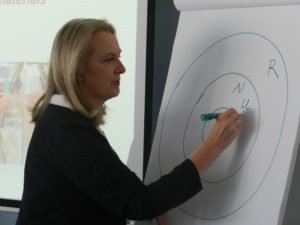 A number of experts and senior officials from the Vienna-based international organizations and missions gave presentations during the course, including Dr. Francesca Giovannini (CTBTO), Sandra Munoz (IAEA), Ian Stewart (King’s College London), Ionut Suseanu (IAEA), and Dr. Ardalan Zargham. The VCDNP and CNS lecturers included Margaret Croy (CNS), Angela Kane (VCDNP), Ingrid Kirsten (VCDNP), Gaukhar Mukhatzanova (VCDNP), Elena Sokova (VCDNP) and Dr. Nikolai Sokov (VCDNP).
A number of experts and senior officials from the Vienna-based international organizations and missions gave presentations during the course, including Dr. Francesca Giovannini (CTBTO), Sandra Munoz (IAEA), Ian Stewart (King’s College London), Ionut Suseanu (IAEA), and Dr. Ardalan Zargham. The VCDNP and CNS lecturers included Margaret Croy (CNS), Angela Kane (VCDNP), Ingrid Kirsten (VCDNP), Gaukhar Mukhatzanova (VCDNP), Elena Sokova (VCDNP) and Dr. Nikolai Sokov (VCDNP).
The course participants benefited from a timely public panel on the future of the Joint Comprehensive Plan of Action. The event featured panelists Ambassador Stephan Klement (EU Delegation to the International Organizations in Vienna), Richard Nephew (SIPA Columbia University), and the VCDNP’s own Gaukhar Mukhatzhanova.
Participants were also given an opportunity to visit the IAEA Safeguards Laboratory and the Comprehensive Nuclear-Test-Ban Treaty Organization’s International Data Centre and International Monitoring System. The half-day field trip enabled participants to interact with experienced professionals working at both organizations and enhanced their understanding of the technical aspects of safeguards verification and nuclear test monitoring.
Throughout the course, participants were encouraged to learn from one another by sharing their professional experiences. To facilitate peer engagement, the VCDNP hosted a roundtable discussion with previous course alumni who shared their experiences working in multilateral environments. The discussion was followed by a networking event where course participants were able to engage with alumni on a one-on-one basis.
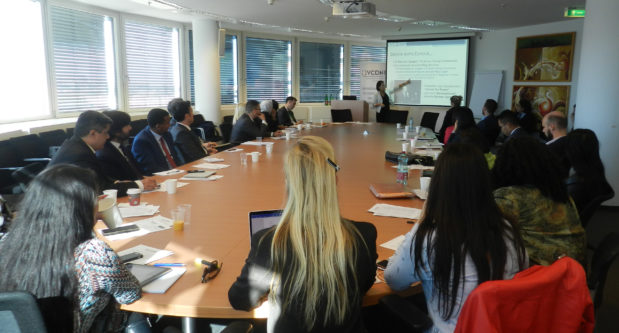
At the end of the course, participants completed an anonymous evaluation where they could assess different aspects of the short course and provide suggestions for improvement. Overall, participants found the course to be very useful in providing insightful information that they could utilize in their professional careers.
Below are some of the comments provided by participants (quoted as written):
Great course – helped us to pull together lots of issues into a nice, compact week of study. I learned more than I ever thought possible!
***
I’ve got a better understanding of the international framework in terms of cooperation in [the] non-proliferation sphere and disarmament.
***
This course introduced me to the technical side of nuclear disarmament and non-proliferation – an opportunity I have never had before, coming from a region that is affected by small arms and light weapons.
***
Very knowledgeable speakers who could elaborate and answer questions beyond their presentations.
This course is made available thanks to the generous support of the Norwegian Ministry of Foreign Affairs, the Ministry of Foreign Affairs of the Netherlands, the Carnegie Corporation of New York and the John D. and Catherine T. MacArthur Foundation.
